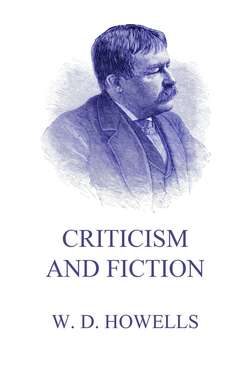Читать книгу Criticism And Fiction - William Dean Howells - Страница 11
VII.
ОглавлениеThe misfortune rather than the fault of our individual critic is that he is the heir of the false theory and bad manners of the English school. The theory of that school has apparently been that almost any person of glib and lively expression is competent to write of almost any branch of polite literature; its manners are what we know. The American, whom it has largely formed, is by nature very glib and very lively, and commonly his criticism, viewed as imaginative work, is more agreeable than that of the Englishman; but it is, like the art of both countries, apt to be amateurish. In some degree our authors have freed themselves from English models; they have gained some notion of the more serious work of the Continent: but it is still the ambition of the American critic to write like the English critic, to show his wit if not his learning, to strive to eclipse the author under review rather than illustrate him. He has not yet caught on to the fact that it is really no part of his business to display himself, but that it is altogether his duty to place a book in such a light that the reader shall know its class, its function, its character. The vast good-nature of our people preserves us from the worst effects of this criticism without principles. Our critic, at his lowest, is rarely malignant; and when he is rude or untruthful, it is mostly without truculence; I suspect that he is often offensive without knowing that he is so. Now and then he acts simply under instruction from higher authority, and denounces because it is the tradition of his publication to do so. In other cases the critic is obliged to support his journal’s repute for severity, or for wit, or for morality, though he may himself be entirely amiable, dull, and wicked; this necessity more or less warps his verdicts.
The worst is that he is personal, perhaps because it is so easy and so natural to be personal, and so instantly attractive. In this respect our criticism has not improved from the accession of numbers of ladies to its ranks, though we still hope so much from women in our politics when they shall come to vote. They have come to write, and with the effect to increase the amount of little-digging, which rather superabounded in our literary criticism before. They “know what they like”—that pernicious maxim of those who do not know what they ought to like and they pass readily from censuring an author’s performance to censuring him. They bring a stock of lively misapprehensions and prejudices to their work; they would rather have heard about than known about a book; and they take kindly to the public wish to be amused rather than edified. But neither have they so much harm in them: they, too, are more ignorant than malevolent.
